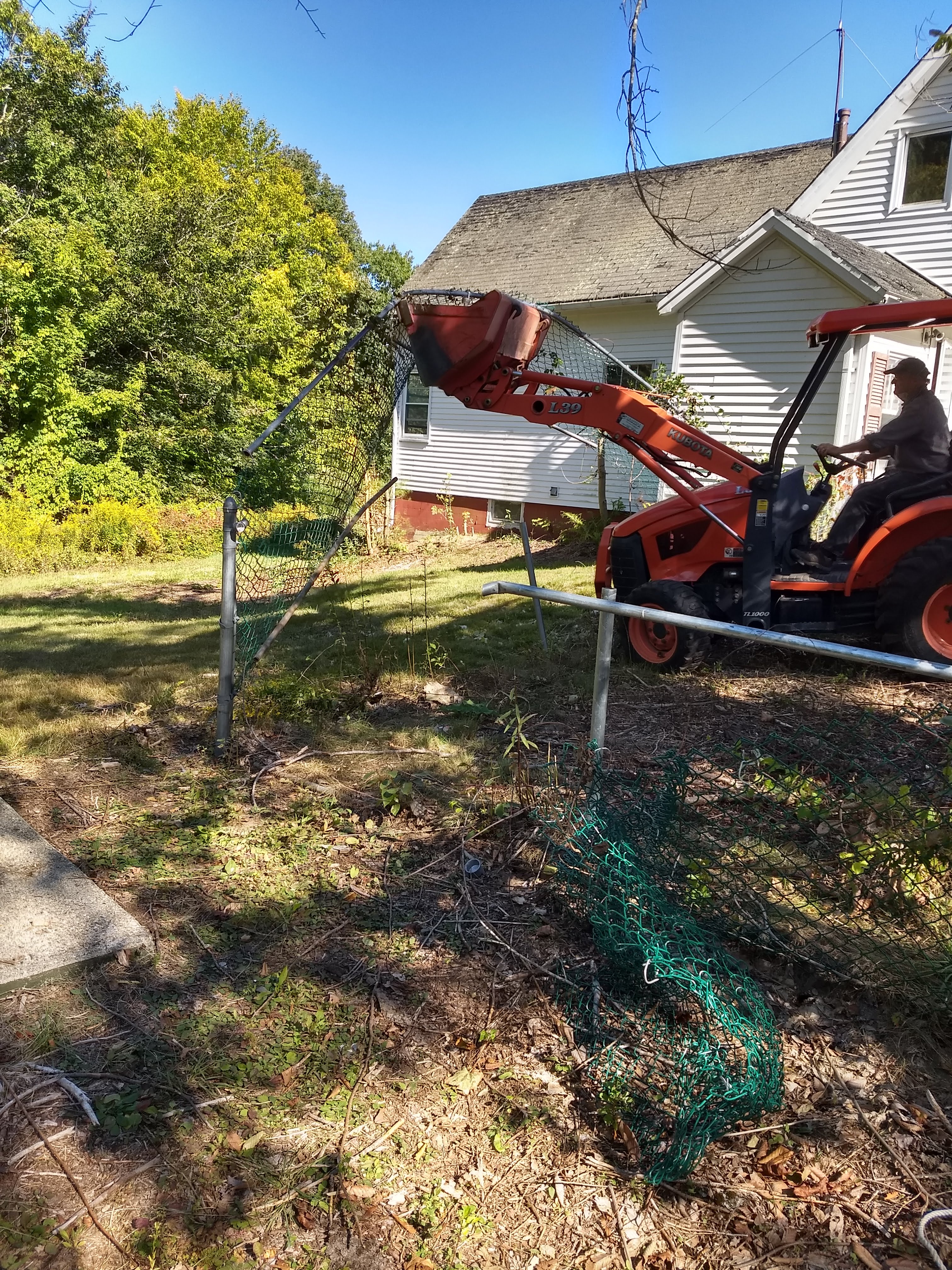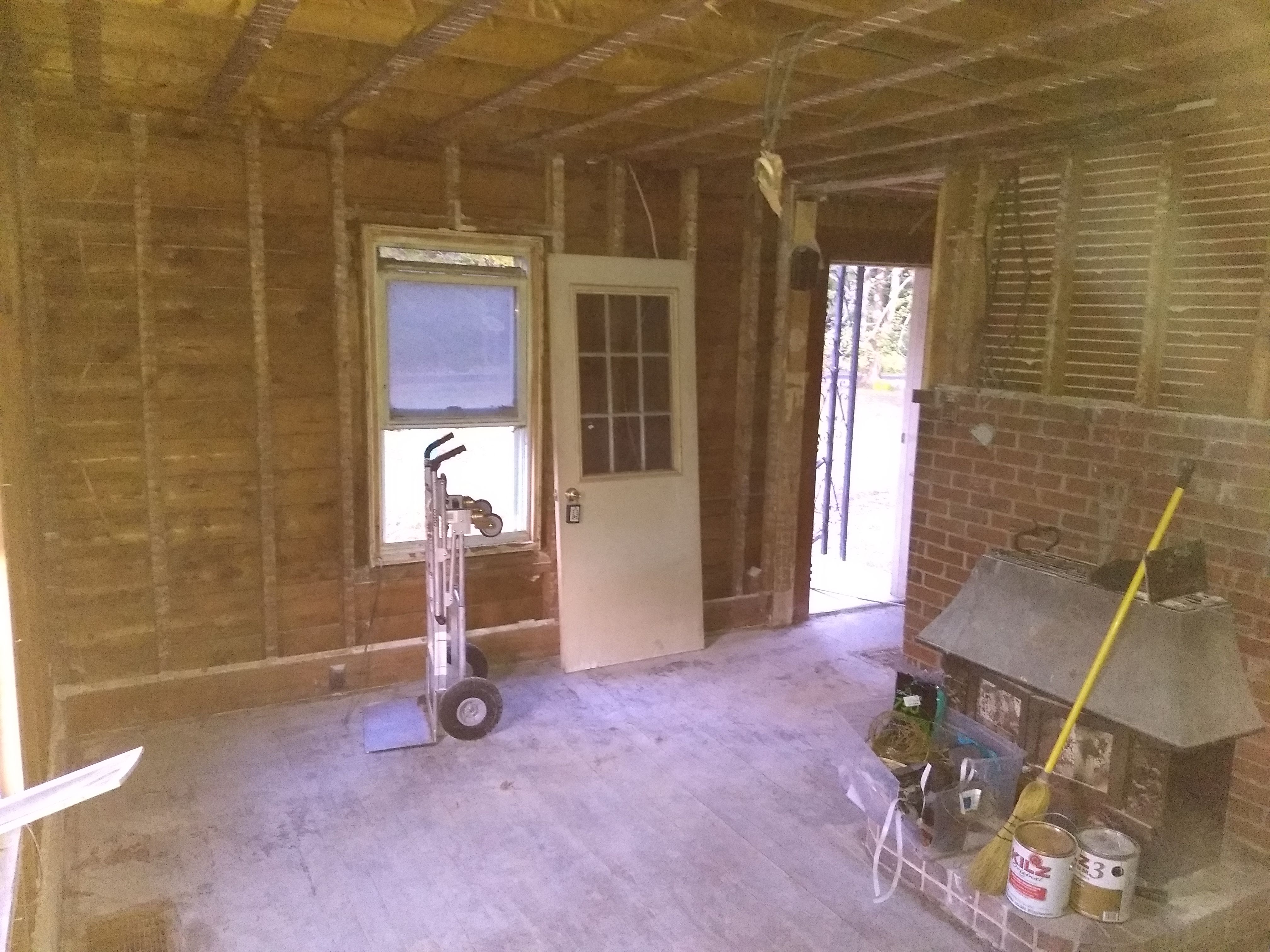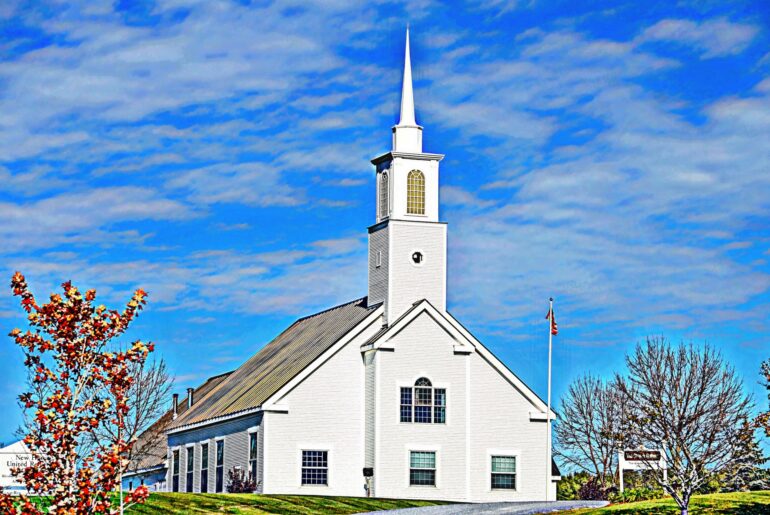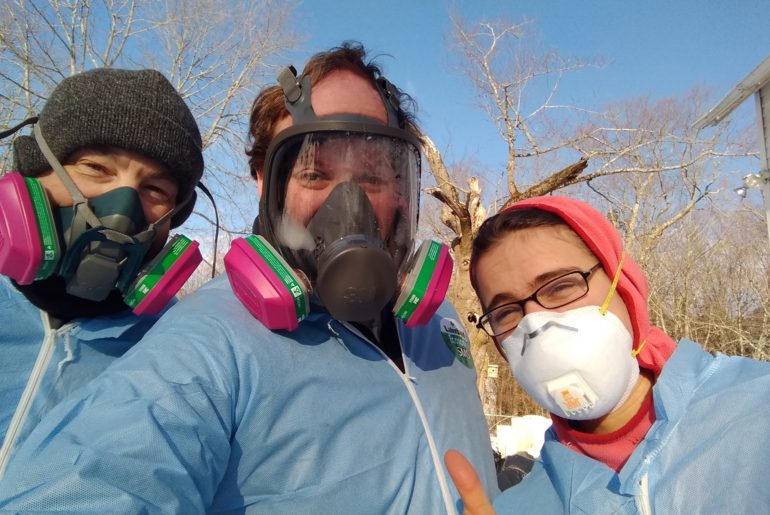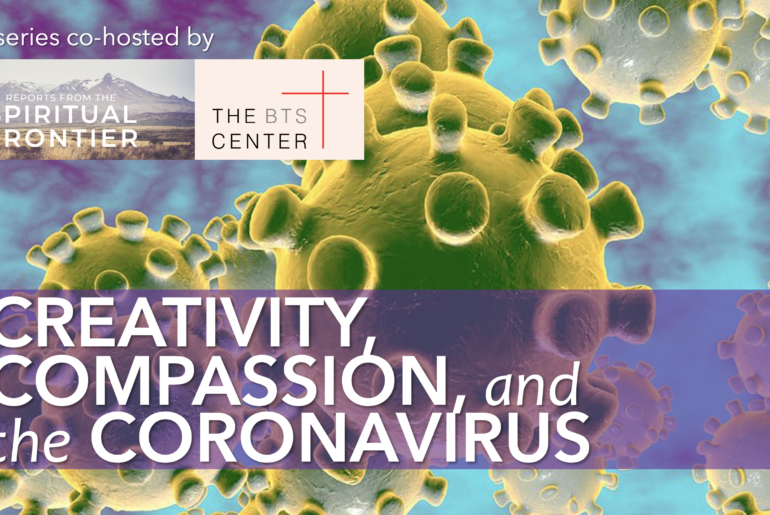I think it’s safe to say that my last post generated a lot of feedback. While most of the comments I received were either affirming (thank you, it’s good to know that there are others that feel as I do), or thoughtlessly denouncing (more on this below); I did receive a third set of comments which I feel deserve greater engagement.
I received a few (and, I’m sure that there are a few silent folks out there who felt similarly) thoughtful pieces of pushback, from people who were hurt by my words or took issue with the tone of my analysis. Since my last post appears to have set a bull loose in a theological china shop, I’d like to take a couple minutes to sweep up a few broken pieces and explain some of the choices I made in how I framed the last piece.
First, to answer a couple pieces of criticism with the seriousness that they deserve:
Am I a worker of Satan? Not so far as I know; but I suppose if you go back to the very original Hebrew definition of “ha Satan” which meant tester or accuser, those might in fact describe the tone of my piece very well; so…maybe?
Would I have stoned Paul if I had been in Damascus two thousand years ago? Answer is a definite no. First, I’m more or less a pacifist and secondly my aim is pretty horrible without my glasses, which most likely means that I’d be more of a danger to the crowd than to Paul in any case.
And now, to some of the more serious concerns:
Do I believe that every Christian who belongs to a church is an asshole?
This deserved a little more clarity in my original piece. I don’t believe this (and it would be very awkward if I did, since my wife is a pastor and I work as music director at a church filled with lovely people.) I might have better said, “It is the near-universal experience of people under the age of 35 that American Christendom has become a church of assholes.”
Lest you think that this is some form of intentionally provocative exaggeration, this is actually backed up by empirical evidence, including a study done about 10+ years ago (pre-Trump, nonetheless!) that states that three adjectives that young adults would most use to describe Christians are: anti-homosexual, judgmental, and hypocritical (which doesn’t sound like a bad definition of asshole if you ask me.)
This is not simply a problem of perception: we actually have no empirical evidence that being involved in American Christendom makes you more like Jesus on a behavioral level. If anything, the studies suggest that being an American Christian may have a negative effect on your Christ-likeness when the rubber hits the road (e.g. generosity, being accepting of others, not lying, not stealing, etc.)
Does this mean that I believe that your particular church or you individually are assholes? No. This is about people’s perception and about entire systems, not about specific contexts. But, before you let yourself off the hook and decide that this is a Problem for Other Churches Because Mine is Great, I’d invite you to do some serious thinking about whether your church operates in a more loving fashion or is more aligned with God’s purposes for the world at an enacted level than your local YMCA or *insert preferred non-profit or business organization here*.
Do you really think that the Church, Christ’s body, is dying?
No, I absolutely don’t, and this points to a place where I feel like we need to create a lot more daylight in our conversations about American Christianity between “church” and “Church”. If we conflate church (e.g. every faith community that has the word “church” in their name or worships with Jesus-language on Sunday or every denomination that organizes said faith communities and claims spiritual authority) with Church (Christ’s very body at work in the world through us), we end up in situations where Jesus ends up doing some very odd, oftentimes downright offensive sort of things (see previous question) and seems pretty much under the control of hierarchs and demographic forces.
Rather, I believe that the destruction of the American church is proof of the irresistible vitality of the Church. God does not need to wait on old, death-dealing forms of institutional religion to get their act together when God can make “the rocks cry out.” And so, God is burning down the institutional deadwood so that something new can grow in the sunlight. This is unbelievably painful for those of us who love those old, dead trees; but it’s also tremendously exciting. The Church is the power of the resurrection life made manifest, and that life is more powerful than death, even the death of our dead-but-walking religious institutions.
Your post sounds gleeful at times about the destruction of American Christendom. Where’s your grief?
If you haven’t engaged with a lot of my other work, I could see how you felt this way. I myself am a child of the American Christendom. I grew up in a beautiful, faith, traditionally structured church that gave me the hymnody I sing, my deepest convictions about the Christian life, and a living image of what Christian community is supposed to look like. It was that church which kept me together when I became horribly sick when I was nine and wasn’t able to return to school until I was thirteen. There are many ways that I owe my health and sanity to the group of people and that indeed deserves a lifetime of grief and gratitude.
There were many gifts, held by imperfect hands in the time of American Christendom; and some of those gifts will be lost or their memory forgotten. And for that, I grieve.
I grieve that the hymns that have formed my life will not shape the lives of my children.
I grieve that it’s unlikely that my children will experience a sanctuary full of people enthusiastically worshipping God, easily accessible opportunities to form spiritual community with people their own age, or know a connection to a wider church that is not completely consumed with anxiety.
I grieve that building a ministry is now so damn hard in this environment and every gain is so painfully fragile.
I grieve for the pastors, crushed under the weight of expectations, unprepared by their training, and utterly burnt out; many of whom would much better serve Christ out of the clergy than inside it; but who feel utterly trapped and unable to leave until retirement age.
I grieve for all those wonderful, well-intentioned people connected with old, dying congregations who feel inadequate, terrified, and helpless.
But, there is much more that I grieve for:
I grieve for all the people who will have nothing to do with church because they encountered a clergyperson who *everyone* knew had no business being a pastor, but whose destructiveness and sometimes outright abuse was enabled by a conspiracy of silence and bureaucratic inertia that often lasted for decades.
I grieve all the partnerships with non-profits and other organizations left dead before birthing, because of churches that worshipped their buildings and their money more.
I grieve all the children I know who were bright-eyed about God until they methodically and decisively shut out of the life of the congregation because they didn’t act like little 80-year old’s in worship or because people just didn’t care. (And I grieve even more for every time I wasn’t able to do anything about it.)
Grief and lament are absolutely an important part of the prophetic process, and it would be correct to notice that my piece didn’t contain grief. In part, this is because I’ve noticed that grief in church circles frequently becomes a denial of responsibility, a sort of myopic narcissism where we believe that our sadness means that we should saint what is passing. If we grieve for the passing of the American Church, then we should grieve even more for the victims of its many sins.
We need to hold both forms of grief together if we’re going to say goodbye to American Christianity with integrity.
Your writing seems pretty hopeless.
I could push back about that (after all, I think that the conviction that God is at work to liberate the oppressed and set the spiritual captives free is *very* hopeful news), but I understand what you’re getting at. It’s true that I didn’t nod at the new spiritual communities and new prophets that are springing up out of the Christian tradition and suggest God’s resurrection power already at work. (Check out my podcast if you want about one hundred instances of me engaging in this.)
I’ll be honest. I didn’t mention any of this quite on purpose.
In American Christendom, hope often appears to be a synonym for denial. I can’t count the number of times at a conference or judicatory meeting, that I’ve heard, at the end of a recitation of the statistics of our apparently irreversible institutional decline, the assurance “But Sunday’s coming!” or “But we believe in a God of resurrection!” or “God’s doing a new thing among us!” And while these things are all true, they serve to short-circuit the very necessary process that leads us to hope: the acknowledgment of our reality.
The reality is that American Christendom is done. We’re not at Easter Sunday, we’re headed into Good Friday, with a Holy Saturday laying in the tomb after that; and because we are unable to acknowledge the unavoidable reality that death comes before resurrection, what we think of as resurrection is merely life support. I have yet to hear a group of Christian leaders deal seriously with the fact that American Christendom is dead and cannot be revived. And until that fact is publicly acknowledged, lamented, and grieved; true hope will not be able to find a purchase among us.
After having interviewed about a hundred spiritual pioneers over the last five years; I have also become cautious about citing new faith communities or faith leaders as a reason why the American Church can have hope. Frequently, when this connection is made, anxious organizations and leaders will place the responsibility for their institutional survival upon the backs of these small, frequently under-resourced ministries. I mean this literally. I remember one church planter who told me, “My Bishop said, ‘I’m letting you plant this church so you can grow and make sure that our conference doesn’t financially go under.’” That expectation, stated or implied, is an almost-universal experience of spiritual pioneers in mainline denominations. These communities (and their leaders) neither need or deserve to be our Messiahs; and when they fail to live up to these impossibly high expectations, they are often crucified and discarded.
I do have a great deal of hope. In fact, I believe that the judgment of the American Church is absolutely the best thing that could happen to it. But no, I don’t believe that I should encourage people to hope for a miracle resurrection when what they should do is acknowledge that the patient is dead.
This piece still seems really harsh.
That’s fair. And if it offended or hurt you, I’ll take responsibility for that. After all, intentions are different than impact; and that’s truer on the internet than perhaps in any other social space, especially in the scope of one blog post.
I hope you hear that genuine regret and that, if you’ve made your way to the end of these two-thousandish words, you’ll also better understand why I wrote it the way that I did. I’ve written this exact same post at least four times before over the last five years, and have either not hit publish, or nuanced it with precisely these critiques about grief and hope in mind until it no longer meant what it was supposed to mean. And sure enough, when I watch the responses to those carefully nuanced pieces, I hear people blaming demographic shifts, leadership development, or incorrect theology or political positions (e.g. Those damn evangelicals! Those godless liberals!) rather than taking responsibility for their own spiritual work.
Since my latter years as a church planter, I’ve struggled to find my voice; one that speaks from within that is not forever over-regulated by relational or professional calculus. Most of the time, my words are highly engineered, and almost always tempered to assuage my own anxiety.
As I’ve suffered during the collapse of my health and career, done my work with therapists and spiritual directors and in community; and begun to grow in my own sense of self, I’ve realized how damaging this calculus is to my spiritual health; and I’ve tried, as mindfully as possible, to start speaking out of my own inner integrity, and let the chips fall where they may.
What you had here was the purest example of my rage at the hurt that I and so many people have suffered at the hands of American Christendom and my seething frustration at American Christendom’s unwillingness to take responsibility for its sins (and no, I’m not just talking about evangelicals, in case I haven’t been clear.) It’s unlikely you’ll ever see me post something this angry ever again, and I hope you realize by now (if you didn’t before) that my anger is not the sum of my theology or my work.
That’s where I’ll leave it by now. If you’re one of those people who was hurt by my writing, I hope you feel a little more heard now; and I also hope you can also hear why I wrote what I did in the way that I did. [And I’m always happy to continue the conversation via email as well.)
Onwards into the mess together.
Ben Y-D


